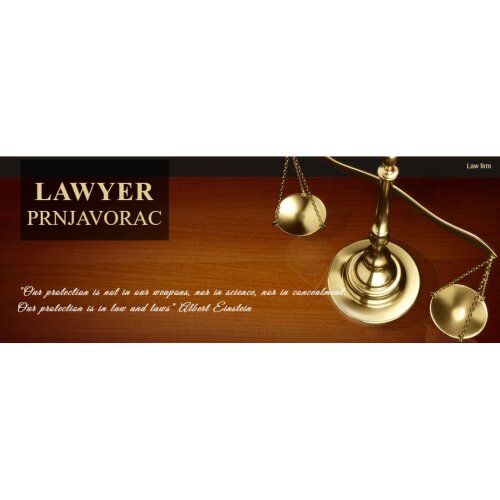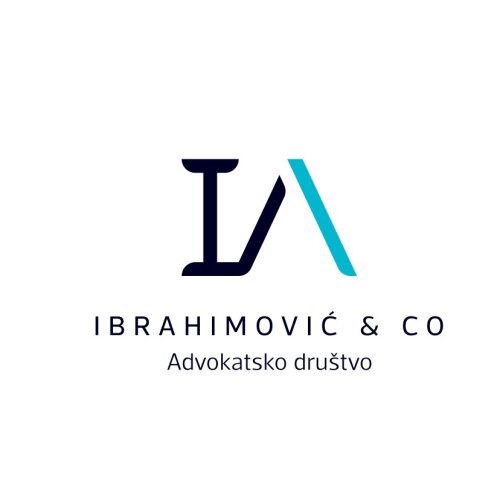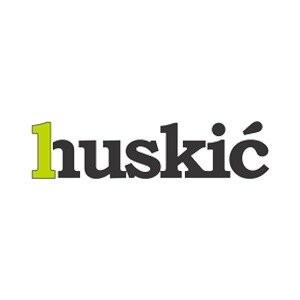Best Conveyancing Lawyers in Bosnia and Herzegovina
Share your needs with us, get contacted by law firms.
Free. Takes 2 min.
Free Guide to Hiring a Real Estate Lawyer
Or refine your search by selecting a city:
List of the best lawyers in Bosnia and Herzegovina
About Conveyancing Law in Bosnia and Herzegovina
Conveyancing refers to the legal process of transferring ownership of real estate property from one person or entity to another. In Bosnia and Herzegovina, conveyancing is governed by a combination of entity laws and state level regulations. The process involves due diligence, the drafting and signing of contracts, registration of ownership, and payment of applicable taxes and fees. The local system can be complex, given the country's unique political structure and division into the Federation of Bosnia and Herzegovina, Republika Srpska, and Brčko District, each with its own laws and administrative agencies relating to property transfer. Understanding the roles of cadastral offices, courts, and notaries is essential for a successful conveyance.
Why You May Need a Lawyer
Engaging a lawyer for conveyancing in Bosnia and Herzegovina can be crucial, as the process often requires expert legal knowledge to navigate potential issues and comply with all requirements. Common situations where legal help is needed include:
- Buying or selling residential, commercial, or agricultural property
- Addressing disputes over property boundaries or ownership
- Ensuring the validity of property title and checking for outstanding liens or encumbrances
- Understanding and complying with local zoning and land use regulations
- Transferring inherited property
- Resolving issues related to co-ownership or partition of property
- Assisting foreign buyers with legal compliance and documentation
- Handling complex transactions involving companies or developers
- Guiding clients through taxation, fees, and documentation processes
A qualified lawyer ensures all procedures are correctly followed, contracts are sound, and your interests are protected throughout the transaction.
Local Laws Overview
Conveyancing laws in Bosnia and Herzegovina are shaped by several factors:
- Entity Specific Legislation: Each entity - the Federation of Bosnia and Herzegovina, Republika Srpska, and Brčko District - has its own laws on property and registration, leading to variations in procedures and fees.
- Cadastral and Land Registry: Property rights are established via entry in the Land Registry (Zemljišna knjiga), managed by local courts and cadastral offices. Both the factual (cadastral) and legal status (land registry) of each property must be verified.
- Role of Notaries: Only notaries can draft and notarize property transfer contracts. Their involvement is mandatory for validity.
- Registration Process: Ownership is transferred only upon successful registration in the Land Registry, even after contract signing.
- Taxes and Fees: Buyers typically pay property transfer tax unless they qualify for exemptions, such as purchasing a first home. The rate and exemptions vary by entity.
- Foreign Ownership: Foreign individuals and companies may acquire property, but restrictions exist in certain cases. Legal advice is necessary for foreign nationals.
Failure to follow legal requirements can result in delays, disputes, or even invalid transactions.
Frequently Asked Questions
What documents are required to sell property in Bosnia and Herzegovina?
Sellers need a valid identification document, proof of ownership (Land Registry certificate), recent utility bills, and any documentation evidencing absence of encumbrances or mortgages. Additional documents may be required by the notary or cadastral office.
How long does the conveyancing process take?
The process can take from several weeks to several months, depending on the complexity of the transaction, completeness of documentation, and efficiency of the local registries.
Can foreigners buy property in Bosnia and Herzegovina?
Yes, foreigners can buy property, subject to reciprocity agreements and certain restrictions, particularly on agricultural and forest land. Legal advice is recommended.
Who pays the property transfer taxes and fees?
The buyer typically pays property transfer taxes and notary fees, unless otherwise agreed. The tax rate and exemptions depend on the entity and property type.
What does a notary do during conveyancing?
Notaries draft, notarize, and witness the signing of the property transfer contract. Without notarial certification, the transaction is invalid.
How do I check for outstanding mortgages or liens on a property?
Verification is done by obtaining a current Land Registry excerpt (Izvadak iz zemljišne knjige) from the local court or registry, which lists all registered encumbrances.
When is ownership of the property officially transferred?
Legal ownership transfers only after the new owner is registered in the Land Registry, following submission of all required documents and proof of tax payment.
What are common problems encountered in conveyancing?
Common issues include unclear title, unregistered extensions or buildings, missing documentation, boundary disputes, and unresolved mortgages or taxes.
Is it possible to revoke a property sale after signing the contract?
Once notarized, contracts are binding. Revocation is only possible under limited circumstances, such as fraud, mutual agreement, or court decision.
Do I need a lawyer if I am using a notary?
While notaries ensure formal requirements, they do not represent your interests. Hiring a lawyer is strongly recommended for legal advice and protection throughout the transaction.
Additional Resources
- Local Bar Associations (Advokatska komora) provide lists of licensed lawyers and legal advisors specialized in real estate and conveyancing.
- The Ministry of Justice in each entity provides official guidelines and forms related to property law and transactions.
- The Geodetic Administration (Federalna uprava za geodetske i imovinsko-pravne poslove, Republička uprava za geodetske i imovinsko-pravne poslove) offers information on cadastral data and property boundaries.
- Local Land Registries and Cadastral Offices provide property records and registration services.
- Notarial Chambers (Notarska komora) maintain directories of registered notaries and official fee schedules.
Next Steps
If you need legal assistance with conveyancing in Bosnia and Herzegovina, consider the following steps:
- Gather all relevant documentation related to the property and your intended transaction.
- Consult a lawyer specialized in real estate or conveyancing to review your case and explain your legal options.
- Contact a licensed notary for drafting and notarizing official documents.
- Verify property details with the local cadastral office and obtain an updated Land Registry excerpt.
- Follow all legal and procedural steps, such as payment of taxes and submission of documents for registration.
- If you encounter disputes or complexities, stay in close communication with your lawyer to safeguard your interests.
Starting the process with qualified legal guidance is essential to ensure a secure, efficient, and successful property transaction in Bosnia and Herzegovina.
Lawzana helps you find the best lawyers and law firms in Bosnia and Herzegovina through a curated and pre-screened list of qualified legal professionals. Our platform offers rankings and detailed profiles of attorneys and law firms, allowing you to compare based on practice areas, including Conveyancing, experience, and client feedback.
Each profile includes a description of the firm's areas of practice, client reviews, team members and partners, year of establishment, spoken languages, office locations, contact information, social media presence, and any published articles or resources. Most firms on our platform speak English and are experienced in both local and international legal matters.
Get a quote from top-rated law firms in Bosnia and Herzegovina — quickly, securely, and without unnecessary hassle.
Disclaimer:
The information provided on this page is for general informational purposes only and does not constitute legal advice. While we strive to ensure the accuracy and relevance of the content, legal information may change over time, and interpretations of the law can vary. You should always consult with a qualified legal professional for advice specific to your situation.
We disclaim all liability for actions taken or not taken based on the content of this page. If you believe any information is incorrect or outdated, please contact us, and we will review and update it where appropriate.
Browse conveyancing law firms by city in Bosnia and Herzegovina
Refine your search by selecting a city.












